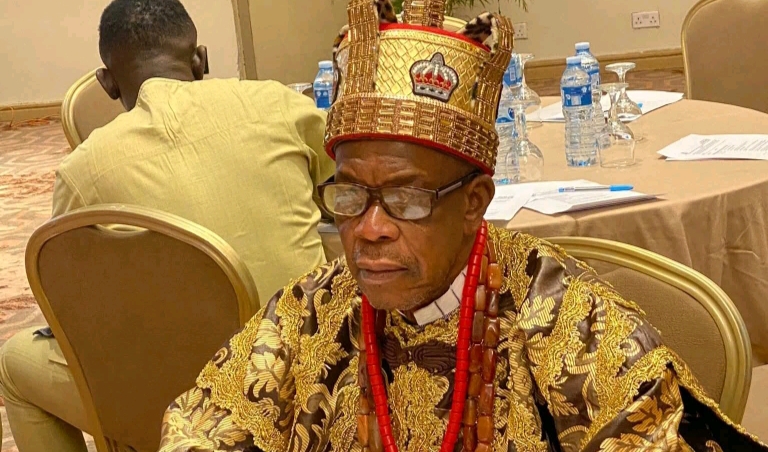
By Ibe Pascal Arogorn
Nigerian Clergy are in the Nigeria when all sort of dangerous bill where presented to the National Assembly yet they fold their arms and do nothing. Since the tenure of president Muhammadu ,Buhari administration has been borrowing recklessly without form of confrontation and condemnation from the Nigerian religious leaders . Last year ,An Antisocial media bill and Hate speech bills were presented to the National assembly, They scaled through first and second reading in the Senate respectively. If not for the efforts of responsible Activists in Nigeria who are clamouring for it’s abolishment, then I can’t imagine what could have happened. Nigeria is facing insecurity bordering from Terrorism,Banditry and others currently. Our Clergy in Nigeria have continued to do nothing. Are am I to talk about the recent Water bill which is controversial?
Our Nigeria religious leaders jumped out from their “Rat holes ” immediately The Company and Allied Matters Bull (CAMA) was assented by President Muhammadu Buhari on 7 August 2020.
On 7th August, 2020, President Muhammadu Buhari signed the Companies and Allied Matters Bill(CAMA) which was recently passed by the National Assembly into law. The new Companies and Allied Matter Act (“CAMA 2020” or “the Act”) introduces new provisions to reflect modern commercial realities as well as reduce compliance costs and regulatory hurdles for businesses in Nigeria. The CAMA 2020 repeals the CAMA 1990 and amongst other provisions introduces the following changes::
Provisions for a single member/shareholder companies whereby, under the CAMA 2020, a private company can be established with only one member or shareholder;
Authorized Share Capital has now been replaced with Minimum Share Capital. Thus, the promoters of a business do not need to pay for shares that are not needed at a specific time with the introduction of minimum share capital provision;
Filing, share transfer and meetings can now be done electronically by private companies;
Annual General Meetings can now be held virtually for all companies;
Introduction of Statement of Compliance which can be signed by an applicant or his agent, confirming that the legal requirements with respect to registration have been complied with. This serves as an alternative to the requirement to submit a Declaration of Compliance, which required the signature of a lawyer or attestation before a notary public;
Exemption of small companies or companies with single shareholders from the requirement to appoint Auditors;
The requirement for appointment of a company secretary is now optional for private companies,
Introduction of Limited Partnerships and Limited Liability Partnerships in Nigeria which provides the organizational flexibility and tax status of a partnership with the limited liability of members of a company for partnerships;
Reduction of filing fees for registration of charges;
Merger of Incorporated Trustees ;
Restriction on multiple directorship in public companies, this prohibits a person from being a director in more than five public companies at the same time;
Business rescue provisions for Insolvent Companies;
Enhancement of Minority Shareholder Protection and Engagement – The Act restricts private companies from appointing a director to hold the office of the Chairman and Chief Executive Officer.
The signing of the Companies and Allied Matters Bill into law is a welcome development as it is expected to improve the ease of registration, commencement and operation of businesses in Nigeria by providing simpler processes and lessening regulatory compliance burden. For example, the provision of single member companies as well as the removal of requirement to appoint statutory auditors for small companies will reduce cost and compliance processes for such companies. The provision for Limited Liability Partnerships, is in line with modern trends in corporate law and means such entities will have more flexibility in doing business and their proprietors, will enjoy the same protection that Limited Liability Companies enjoy.
The provisions for electronic filing and virtual meetings is in line with the realities brought to the fore by COVID-19 and will also improve the use of technology in corporate governance and compliance, likewise, other provisions that seek to enhance transparency in the operations of companies such as the requirement for disclosure of persons with significant control in companies (Section 119 of the new Act) and the restriction on multiple directorship in public companies, along with the enhanced provisions for minority shareholder protection.
Overall, the repeal of CAMA 1990 and the enactment of this Act is a welcome development for businesses in Nigeria, especially coming 30 years apart, when business practices, commercial transactions and the laws and practices governing them have significantly changed globally. It is hoped that in implementing the law, the Corporate Affairs Commission and other relevant government agencies will keep to the spirit of the amendment, which is to enhance the overall ease of doing business in Nigeria and minimise the compliance burden for companies.
After the President’s assent to the CAMA Bill ,Nigerian Clergy wasted no time in condemning the assented Bill on grounds that it is an act of holocaust and calamity for Nigerian government to regulate the activities of the Churches and Mosques in Nigeria.
The First cleric who reacted to the CAMA Bill was Living Faith presiding Bishop, David Oyedepo .On August 17,2020, The Cable reported that while addressing members of his congregation yesterday(August 16). Oyedepo said such laws were borne of out the government’s jealousy about the prosperity recorded by the church. Oyedepo questioned the rationality behind subjecting churches to the same laws as companies, describing the church as God’s heritage on earth.. “The church is God’s heritage on earth. Molest the wife of somebody and you will see the anger of that person. The church is the bride of Christ. You know how a strong man is when you tamper with his wife. The church is the body of Christ. We are under obligation to give warnings to wicked rulers so we could be free from their blood,” he said.
After the reaction from David Oyedepo on CAMA Bill, The presidency ,Garba Shehu replied him saying “The government must do what is Right, you can go and form your own republic if you can’t obey the laws in Nigeria to regulate NGOs.
In an exclusive interview with Punch newspaper, Pastor Bayo Oladeji , the Special Adviser on Media to the President of the Christian Association of Nigeria , Rev Supo Ayokunle, expresses CAN’ s displeasure with the recently signed Companies and Allied Matters Act on August 22,he said,” The Christian Association of Nigeria rejects the entire CAMA. We kick against it. To us , it is an ill wind which blows no good to anyone. The Act is ungodly and it is a wicked provision . This is because if you say the Act on the surface is for the non -governmental organisations and then it covers religious institutions , including churches and mosques, then we cannot keep quiet . The government has been pretending by saying the Act is for NGOs. Ideally , they are supposed to say in the law that this Act has nothing to do with religious institutions . Then we would keep quiet and there will be no problem with it.
There is a contentious section of the law which states that the commission has power to dissolve the Board of Trustees of an association and even appoint a caretaker committee or their own people to be there . We know what recently played out when the Central Bank of Nigeria took over the management of some banks; they brought in their own people. The CBN has the discretion to appoint outsiders to manage the banks till today . So , if the government says their intention is good and their motives and objectives are good, what happens if another government comes to power later and starts abusing the laws, what are we going to do?
So , it is a law that we can regard as a time bomb and if it explodes, it will not help this country. We have enough issues on our hands to deal with ; we have terrorism, banditry, kidnapping and all manner of criminality in this country. The government has not solved these problems yet , it is bringing in another controversy. What do they stand to gain from this law ?
Our Religious leaders are viewing and preaching to their congregation, the twisted story of CAMA Bill which is not true .They have forgotten how Churches are being regulated in Europe and other continents. As in several European countries, a wide range of laws regulates relations between the Church and the State in France. For many centuries, the French government has been responsible for making laws laying out rules for the country’s religions while taking no account of these churches’ own traditional rights. France was part of the historical mono-confessional culture bloc of Catholic countries (Madeley 2003, p. 31; see also Knippenberg’s introduction to this special issue) and has remained a mainly Catholic country with a Protestant minority. Historically, however, the situation has been more nuanced. From 1588 until 1685, the rights of Calvinist minorities were protected. In the same way, after the annexation of Alsace in 1678, the State approved the principles of the Peace of Augsburg in the Holy Roman Empire by granting freedom of worship to Protestants. This distinctiveness is related to the way the French State consolidated itself. However, in contrast to other countries of western and southern Europe, the French religious wars of the 16th century produced a consistent threat of foreign military interventions in the name of Catholicism. In the 17th century, the separation of political power from religious authorities created the State. In an attempt to reduce the country’s religious minorities, such as Huguenots and Calvinists, the government resorted to using military force. In another measure, the Catholic hierarchy of the French Church was placed under the authority of the King. This historical period set definite limits on papal intervention in French political life. It also established a kind of separate Catholic Church within France’s national boundaries.
Various articles of the Law of 1905 defined the role of religions, and separated the religious and public spheres. First, the Republic guarantees ‘‘freedom of conscience’’ (article 1), or freedom of belief. The State does not control the beliefs of the population. The Republic does not recognize, pay, or give grants to any religion (article 2). There is no state legitimization of churches, or public money for religion. This financial issue had been at the core of the conflict. Before the 1905 law, religious leaders were paid by the State, but this applied only to the leaders of the religions recognized in 1802 and 1804, namely Judaism, Lutheranism, Calvinism, and Catholicism. After 1905, religious associations were created and authorized in order to finance a religion’s activities, ministerial wages, the building and maintenance of places of worship, and the public practice of religions was allowed. All churches, cathedrals, or places of worship erected before 1905 became the property of municipalities or the State, and public taxes were spent on their upkeep. Each individual place of worship was to be used by only one religious organization.
If this is the most reputable success which Buhari administration will record before 2023 ,then it is remarkable and will be memorable.
Our Clergy want the extra freedom which is vested upon them to continue their fraudulent impunity. They want fights, quarrel and corruption in Churches and Mosques to go without any form of positive intervention from the government.
It was reported on how a Senior Pastor from Mountain of Fire (MFM) embezzled about $50,000 dollars in the UK.
Nigeria religious leaders want to linger in a Ship of Unchecked extortion and Corruption which they always tend to achieve through their members who are unrepentant religion Bigots, ignoramuses, compound Illiterate and have been brainwashed by this over ambitious Nigeria Clergy.
Ibe Pascal Arogorn is a Journalist and a Columnist.
You can contact him at ibepascal858@gmail.com .








